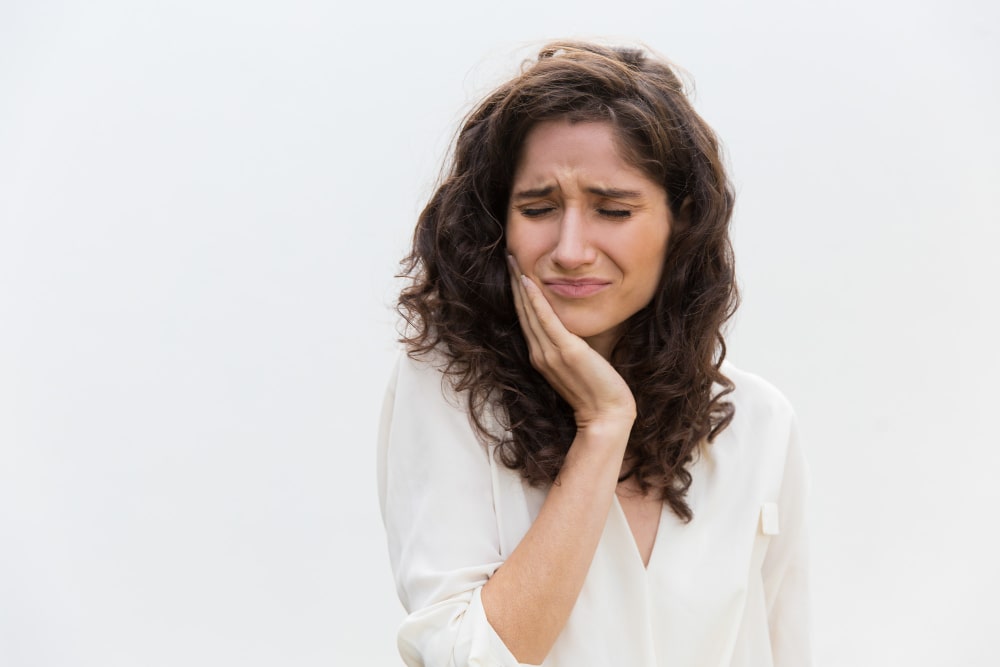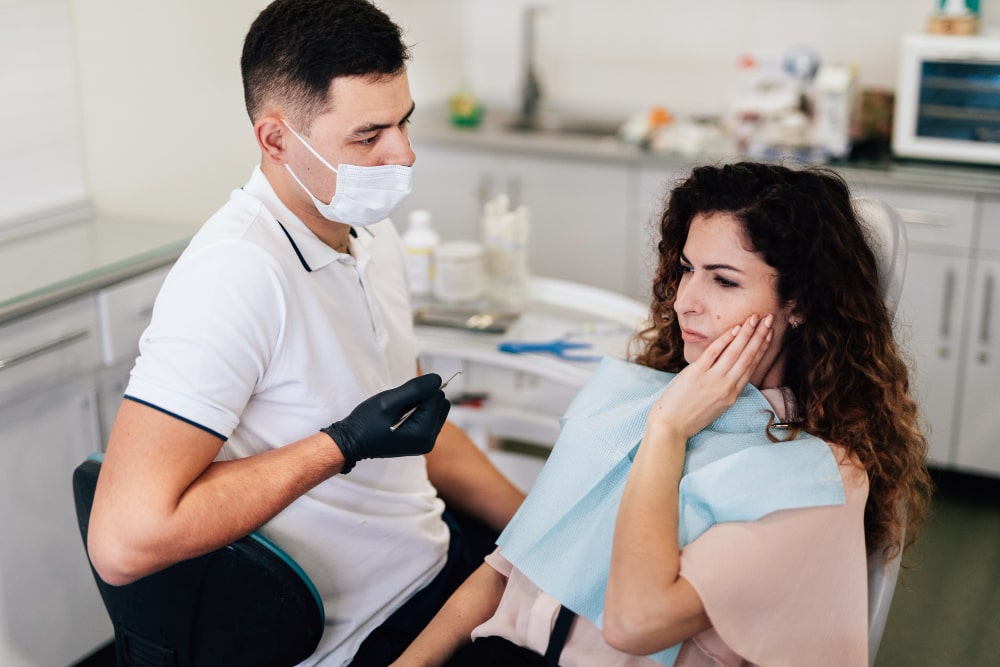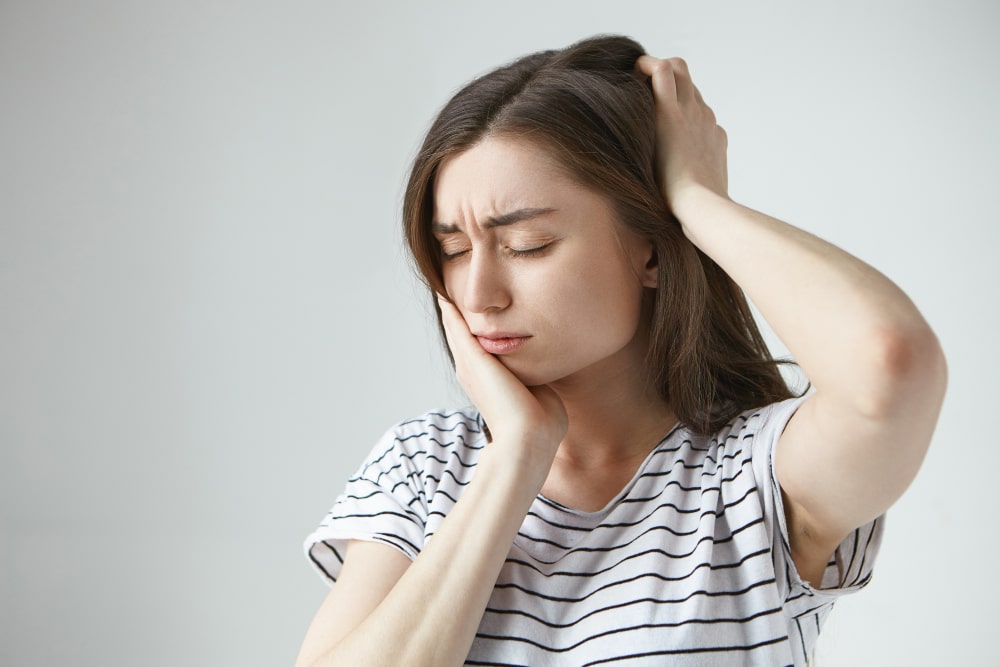Do you have a throbbing pain in your teeth that won’t go away? Have you recently had a root canal procedure and felt this persistent uneasy sensation? If so, then you may be one of the millions out there who suffer from post-root canal pain. In this article, we will explore possible causes and symptoms of throbbing pain after a root canal and provide potential solutions on how your dentist can help you find relief.
What is Root Canal?
A root canal is a dental procedure used to treat infection and decay in the root of a tooth. During the process, the infected tissue and any bacteria present are removed from the root canals, then cleaned and sealed with gutta-percha. The aim is to protect your teeth from further damage and reduce pain.
Overview of Potential Pain After a Root Canal
Throbbing pain after a root canal may be experienced due to several factors, such as infection, incomplete treatment during the procedure, or damage to nerve tissue or surrounding structures. Additionally, sinus conditions or allergies to medications used in the procedure could cause post-root canal symptoms, including throbbing pain. Knowing the causes and symptoms of this kind of pain is essential for determining how best to treat it.
Read More: Sudden Sharp Stabbing Pain in Eye: Causes, Symptoms, Cure
Causes of Throbbing Pain After a Root Canal
1. Infection
Root canal treatment can be complicated, and it is common for some bacteria to remain after the procedure and cause infection. This infection can lead to throbbing pain in the affected area.
2. Incomplete Treatment During the Procedure
Sometimes, a root canal may fail due to incomplete treatment during the procedure. If this happens, inmates may experience throbbing pain as a result of an untreated nerve or other structure in the affected tooth.
3. Damage to Nerve Tissue or Surrounding Structures
In some cases, damage to nerve tissue or surrounding structures may be caused by incorrect placement of instruments during the root canal procedure. This can lead to throbbing pain after a root canal.
4. Sinus Conditions That May Cause Post-Root Canal Symptoms
Sinus conditions such as sinusitis can cause inflammation that may lead to throbbing pain around the affected tooth. This type of pain is usually accompanied by nasal congestion, facial pressure, and headache.
5. Allergies to Medications Used in the Procedure
Allergies to medications used during root canal treatment can also cause post-root canal symptoms, including throbbing pain. If you are allergic to a medication, it is important to inform your dentist before undergoing this procedure so that an alternative treatment plan can be put in place.


Read More: Pain Behind Knee Hamstring: Causes, Symptoms, Treatment
Symptoms and characteristics of throbbing pain
Pulsating sensation
A throbbing pain is a pulsating sensation that often causes discomfort in the affected area. It is usually caused by an underlying condition such as infection or nerve damage.
Intensity and duration of pain
The intensity and duration of throbbing pain after a root canal may vary, depending on the cause of the problem. In some cases, the pain may be mild and short-lived, while in others, it may be more severe and persistent.
Associated symptoms like swelling or fever
You may also experience additional symptoms such as swelling or fever alongside throbbing pain after a root canal. These should usually last a few days and can be managed with over-the-counter medications.
How Your Dentist Can Help With Throbbing Pain After a Root Canal?
Your dentist can help diagnose the underlying cause of throbbing pain after a root canal by doing a physical examination or taking X-rays. They can also prescribe antibiotics to treat any infection, as well as pain relievers or other remedies to reduce discomfort.
In some cases, re-treatment may be required to eliminate any remaining bacteria or incomplete treatment from the original procedure. During this procedure, your dentist will clean the root canal system again and seal it with new material.
Suppose your dentist is unable to diagnose or treat the underlying condition causing throbbing pain after a root canal. In that case, they may refer you to an oral surgeon or endodontist for further assessment. Depending on the diagnosis, they may suggest other treatments, such as apicoectomy (surgical removal of the tip of a tooth’s root) or laser root canal therapy.
Read More: Sharp Pain in Ear: Causes, Symptoms, Treatments, Prevention
Self-Care Tips for Managing Throbbing Pain After Root Canal Treatment
Taking Over-the-Counter Pain Relievers
Your dentist can recommend over-the-counter medications such as ibuprofen and acetaminophen to help relieve throbbing pain after a root canal. Be sure to follow the instructions on the package for the proper dosage and use.
Applying an Ice Pack to Reduce Swelling
Applying a cold compress or ice pack to the affected area can help reduce swelling and throbbing pain after a root canal. Place the ice pack over the affected tooth and jaw for 10 minutes, several times daily.
Practicing Good Oral Hygiene Habits
Good oral hygiene habits are essential for preventing further infection of the affected tooth and avoiding additional pain or discomfort. Your dentist will likely recommend brushing twice daily with a soft-bristled brush and flossing daily. Regular visits to your dentist are also important for maintaining your oral health.
Soothing Foods and Drinks
Soft foods such as applesauce, oatmeal, mashed potatoes, and yogurt can be helpful for managing throbbing pain after a root canal. Additionally, cold drinks like smoothies or milkshakes may help to reduce discomfort.
Stress Relief Techniques
Stress relief techniques can also be beneficial for managing throbbing pain after a root canal. Activities like yoga, meditation, or relaxing bath may reduce pain and discomfort.
Read More: Shoulder acne: Common Causes, Home Remedies, Prevention
Home Remedies Such as Oil Pulling and Turmeric Paste:
Home remedies such as oil pulling or turmeric paste can also help reduce throbbing pain after a root canal. To do an oil pull, mix one teaspoon of coconut, olive, sesame, or sunflower oil with ½ teaspoon of sea salt. Swish the mixture around your mouth for 10-15 minutes, then spit it out. Turmeric paste can be made by mixing two teaspoons of organic turmeric powder with enough water to form a thick paste. Apply this paste to the affected area once or twice daily until symptoms subside.
When to seek professional help


1) Persistent or worsening pain
If your symptoms of throbbing pain after a root canal persist or worsen, it is important to seek professional help. Your dentist can assess the underlying cause and recommend the best treatment.
2) Excessive swelling or bleeding
Excessive swelling or bleeding around the affected tooth may also be a sign that you need to seek professional help. Your dentist can recommend the best action for treating these symptoms and ensuring your oral health is not compromised.
3) Development of additional symptoms
If you develop additional symptoms, such as fever or severe headaches, it is important to seek medical attention. Your dentist can rule out any underlying conditions and provide the necessary treatment to reduce your discomfort and improve your oral health.
4) Follow-up with the dentist
It is important to follow up with your dentist after a root canal procedure, even if you are not experiencing any pain. This will ensure that the underlying condition has been properly treated and no further treatment is required.
Read More: How to Lose Underarm Fat With These 5 Effective Ways
Conclusion
To conclude, throbbing pain after a root canal is a common but treatable condition. If you experience discomfort or additional symptoms, such as swelling or fever, after the procedure, it is important to seek professional help from your dentist. Your dentist can recommend the best course of treatment for managing your symptoms and ensuring your oral health is not compromised. Self-care methods such as taking over-the-counter pain relievers and applying an ice pack can also help reduce discomfort.
FAQs
A. Root canal pain, also known as post-treatment sensitivity or pulpitis, is a common symptom after a root canal procedure. It usually occurs due to inflammation of the nerve and blood vessels in the tooth’s root canal system. The most common symptom is a throbbing pain that can last for several days or weeks.
A. There are several factors that could be causing your post-procedure discomforts, such as an infection, trauma to the area, or irritation from the tools used during the procedure itself. In some cases, the cause may not be immediately obvious and further tests may need to be conducted to determine the cause.
A. There are several ways to help manage your root canal pain, such as taking over-the-counter anti-inflammatory medications, using a warm compress or salt water rinse, and avoiding hot, cold, and sugary foods that may irritate the area. Additionally, visiting your dentist for a follow-up appointment is recommended so they can assess your condition and provide any additional treatments necessary.
A. If your root canal pain persists for more than two weeks or you experience severe pain, swelling, fever, or a bad taste in the mouth, it is best to seek medical advice from your dentist as soon as possible.

